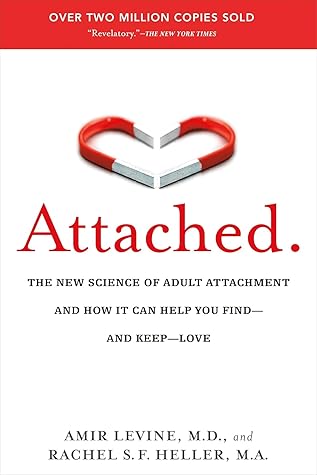More on this book
Community
Kindle Notes & Highlights
by
Amir Levine
Read between
December 31, 2020 - January 18, 2021
It appears that as Bowlby speculated, attachment continues to play a major role throughout our entire lifespan. The difference is that adults are capable of a higher level of abstraction, so our need for the other person’s continuous physical presence can at times be temporarily replaced by the knowledge that the person is available to us psychologically and emotionally. But the bottom line is that the need for intimate connection and the reassurance of our partner’s availability continues to play an important role throughout our lives.
Numerous studies show that once we become attached to someone, the two of us form one physiological unit. Our partner regulates our blood pressure, our heart rate, our breathing, and the levels of hormones in our blood. We are no longer separate entities. The emphasis on differentiation that is held by most of today’s popular psychology approaches to adult relationships does not hold water from a biological perspective. Dependency is a fact; it is not a choice or a preference.
The study demonstrates that when two people form an intimate relationship, they regulate each other’s psychological and emotional well-being. Their physical proximity and availability influence the stress response. How can we be expected to maintain a high level of differentiation between ourselves and our partners if our basic biology is influenced by them to such an extent? It seems
people have very different capacities for intimacy. And when one person’s need for closeness is met with another person’s need for independence and distance, a lot of unhappiness ensues.


